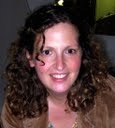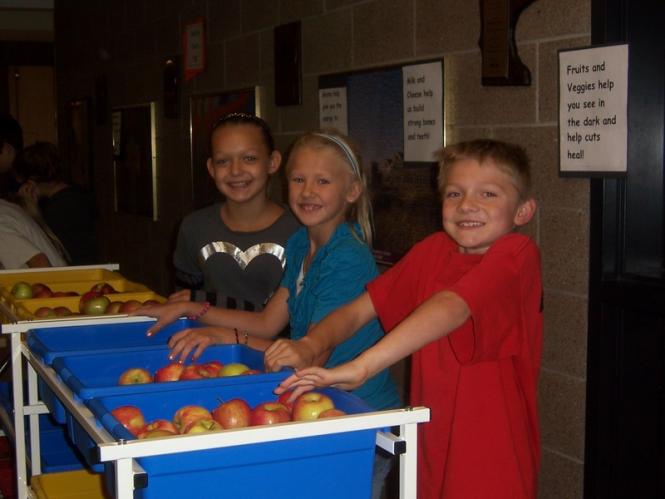More than ⅓ of all American children and adolescents tip the scales and weigh in as obese. Resulting health issues, such as adolescent Type 2 diabetes (33%
increase) and high-blood pressure, are on the rise and nearing epidemic
proportions. The high rates of obesity and obesity related diseases are
simply unacceptable. Moreover, we cannot blame the children as we
adults are responsible for providing our children with better
opportunities and choices. Amy Corner, second grade teacher at Oneka
Elementary, is one such dynamic and motivating leader who is taking
charge and influencing students’ livelihood far beyond that of the basic
curriculum.
The Statewide Health Improvement Program (SHIP) website claims, “Children
and youth spend roughly half of their waking hours in school, so this
setting is a key place to reinforce the importance of eating well and
being active.” Armed with this information and a passion to put a stop
to unhealthy eating and living, Ms.
Corner assembled a healthy lifestyles advisory council made up of
parents, teachers and Washington County staff. With funding support from
a SHIP grant, Oneka school started an apple orchard, a healthy snack
cart and an after school exercise program.
More
than the financial contribution provided by the one-time SHIP grant,
successful efforts such as these are always measured by the community
buy-in. Ms. Corner was quick to point out that the start of the apple
orchard could not be possible without community-wide help from Abrahamson’s Nursery which
gave her a deal on the 30 trees, the students and their parents who
helped dig the holes and the City of Hugo employees who helped water the
trees during summer break. The end result are 29 healthy trees that are
expected to fruit next year. “With an onsite orchard the children are
learning about the cycle of life, responsibility for caring for our
earth and the food we eat, as well as healthy eating options,” said
Corner.
In
addition to the farm to table experience the orchard provides, Ms.
Corner and her crew also launched a healthy food snack cart. The cart
was donated and a small start-up investment enabled the Oneka Elementary
staff to set up the student-led snack cart program. During each morning
break, students are allowed to visit the snack cart and for a fixed
price of .75 cents, they can choose two items such as fresh fruit or rice
cakes. “Key to this program’s success is choice. The students have a
choice on which snacks they want as well as how to run the cart,” said
Corner. The students rotate responsibility for managing the cart and are
charged with charting buying trends, making recommendations for future
purchases as well as marketing the program. With the switch to healthy
snacks, teachers are reporting much less tiredness and overall better
student behavior.
Last,
but not least, Ms. Corner and Oneka PE teacher, Nancy Krocak, put
together an after-school fitness program. Student participation was
completely voluntary and the student and parent interest was
surprisingly high. After each fun fitness program, students were treated
to more elaborate snacks such as yogurt parfaits or nutella and banana
topped rice-cakes. Most students had never tasted such snacks and were
very excited to be able to bring home recipes to share with their
families.
Undoubtedly,
Ms. Corner is one exceptional teacher who is driven by her love for the
students and her passion for healthy lifestyles. The lesson to take away is that with very little financial resources, each of us has the capacity
to similarly turn a negative trajectory into a positive one.

Leigh Ann Ahmad was dragged kicking and screaming to the Cities by her husband; having been born and bred in Cleveland, Ohio, she just could not fathom how colder could be better. Now, five years and two kids later, she cannot imagine a better place to play and thrive. She’s a reformed carb-aholic, wannabe writer, social justice advocate, book-club geek, veggie grower and local foods connoisseur. Her last article about local folks working to improve our food system was: A return to the fields: refugee farmers find refuge at big river farms.




